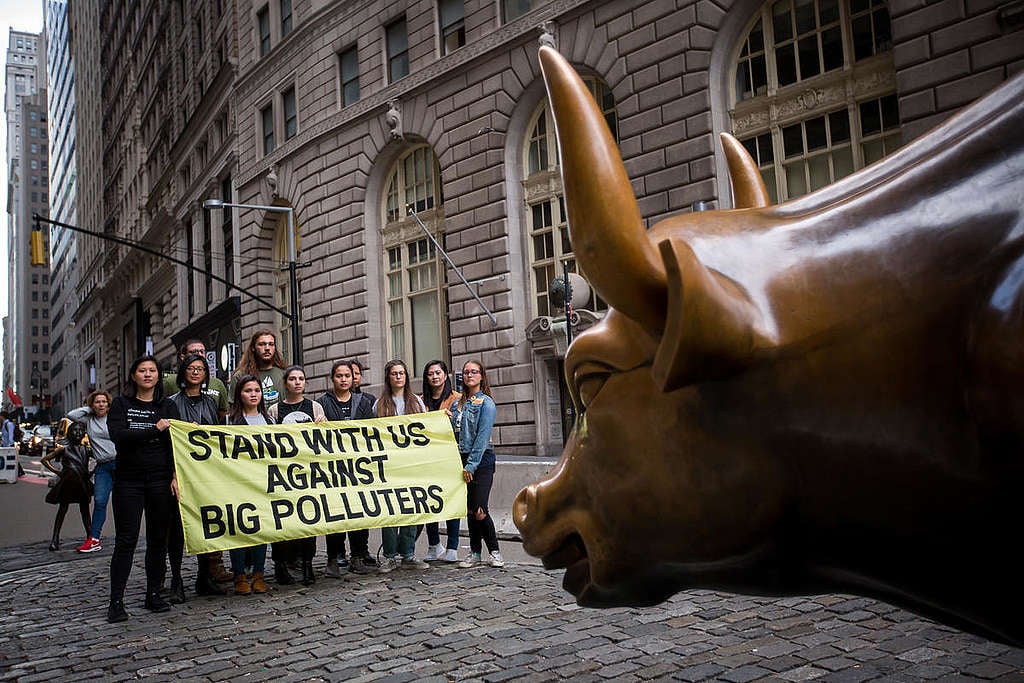European leaders are eyeing increased imports of US liquefied gas (LNG), but Greenpeace USA, Earthworks, and Oil Change International have sounded the alarm bells. According to a new report, investing in US LNG projects could spell disaster for the climate and financial stability. The report highlights five major LNG export projects proposed for the US Gulf Coast that are still pending final investment decisions.
“We found was crystal clear – any further investment in LNG is not compatible with a livable climate,”
emphasized Andres Chang, Senior Research Specialist at Greenpeace USA. The growing infrastructure along the Texas and Louisiana Gulf Coast has already caused significant public health and ecosystem impacts, jeopardizing entire coastal communities. Moreover, if these projects come to fruition, they would push global climate goals even further out of reach.
The analysis in the report scrutinizes five key US LNG projects – Venture Global CP2, Cameron LNG Phase II, Sabine Pass Stage V, Cheniere Corpus Christi LNG Midscale 8-9, and Freeport LNG Expansion. It concludes that each project fails the climate test laid out by models from the US Department of Energy’s 2024 LNG Export public interest studies. These projects would escalate greenhouse gas emissions by displacing renewable energy sources and increasing global fossil fuel consumption. This trend undermines efforts to achieve targets set under the Paris Agreement while exacerbating extreme weather events.
The looming threat posed by these potential developments has prompted concerns about future actions by upcoming US administrations regarding current export authorizations under President Trump’s tenure. With pressure from Trump coupled with tariff threats, the EU Commission is contemplating ramping up its imports of LNG. In its Affordable Energy Action Plan released in February 2025, there is also mention of exploring direct public investments by the EU and its member states in gas export facilities beyond EU borders – including potentially those analyzed in this report.
“EU leaders must break free from fossil fuel dependency and take control of Europe’s future by investing in a renewable, secure, and peaceful energy system,”
urged Thomas Gelin from Greenpeace EU’s climate and energy campaign team.
Moreover,”This report adds to a rapidly growing body of evidence that financing U.S. LNG is not a sound decision for insurers investors or purchasers,” highlighted Dr Dakota Raynes from Earthworks.
While some European energy companies have inked long-term purchase agreements for four of these analyzed projects extending well beyond 2035 – when Europe aims to phase out fossil gas per international commitments – questions loom about sustainability practices amidst such commitments.
“Fossil fuel dependency has long externalized its true costs,”
noted James Hiatt from For a Better Bayou organization
“These harms are not isolated – they’re systemic,”
he added calling for an urgent shift towards sustainable energy solutions rather than perpetuating harmful practices.
Greenpeace advocates for halting new long-term purchase agreements for liquefied gas as well as ditching proposals for direct financial investments in gas export facilities. Instead,the group urges imposing bans on all new fossil fuel initiatives including import terminals while discontinuing all public funding into fossil fuel infrastructure with an aim to phase out fossil gas entirely by 2035 at latest.

